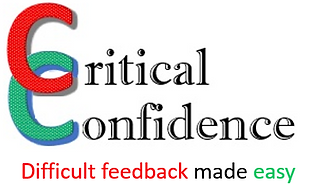Unlocking Potential: Soft Skills Consulting Strategies
- Jason Jarvis
- Jul 4
- 5 min read
In today's fast-paced world, technical skills alone are not enough to ensure success. Companies are increasingly recognizing the importance of soft skills. These skills, which include communication, teamwork, and problem-solving, can make a significant difference in workplace dynamics and overall productivity.
Soft skills consulting is a growing field that helps individuals and organizations develop these essential abilities. In this blog post, we will explore effective strategies for soft skills consulting, providing practical insights and examples to help you unlock your potential.
Understanding Soft Skills
Soft skills are often described as interpersonal skills or people skills. They encompass a range of abilities that enable individuals to interact effectively with others. Unlike hard skills, which are specific and measurable, soft skills are more subjective and harder to quantify.
Some key soft skills include:
Communication: The ability to convey information clearly and effectively.
Teamwork: Working collaboratively with others to achieve common goals.
Adaptability: Being flexible and open to change in various situations.
Problem-solving: The capacity to analyze issues and develop effective solutions.
Understanding these skills is the first step in developing them.
The Importance of Soft Skills in the Workplace
Soft skills play a crucial role in the workplace. They can enhance team collaboration, improve customer relations, and foster a positive work environment.
For example, a team with strong communication skills is more likely to share ideas openly, leading to innovative solutions. Similarly, employees who can adapt to change are better equipped to handle challenges and seize new opportunities.
Moreover, employers are increasingly prioritizing soft skills during the hiring process. A candidate with excellent soft skills may stand out even if they have slightly less technical expertise.
Assessing Current Soft Skills
Before implementing any consulting strategies, it is essential to assess the current state of soft skills within an organization. This can be done through various methods, including:
Surveys: Distributing questionnaires to gather feedback on employees' perceptions of their soft skills.
Interviews: Conducting one-on-one interviews to gain deeper insights into individual strengths and weaknesses.
Observations: Watching employees in action to identify areas for improvement.
By understanding the current landscape, consultants can tailor their strategies to meet specific needs.
Developing a Customized Soft Skills Training Program
Once the assessment is complete, the next step is to develop a customized training program. This program should address the unique challenges and goals of the organization.
Here are some effective strategies for creating a successful training program:
Set Clear Objectives: Define what you want to achieve with the training. This could include improving communication skills, enhancing teamwork, or fostering a culture of adaptability.
Incorporate Interactive Activities: Engage participants through role-playing, group discussions, and team-building exercises. These activities can help reinforce learning and make the training more enjoyable.
Provide Real-World Examples: Use case studies and scenarios that reflect the organization's specific context. This makes the training more relevant and relatable.
Encourage Feedback: Create an environment where participants feel comfortable sharing their thoughts and experiences. This can lead to valuable insights and improvements in the training program.
Follow Up: After the training, check in with participants to assess their progress. This can help reinforce the skills learned and identify any areas that may need further development.
Utilizing Technology in Soft Skills Consulting
In today's digital age, technology can play a significant role in soft skills consulting. Online platforms and tools can enhance the learning experience and make training more accessible.
Some ways to incorporate technology include:
E-Learning Modules: Create online courses that employees can complete at their own pace. This allows for flexibility and accommodates different learning styles.
Virtual Workshops: Host live webinars or virtual workshops to reach a wider audience. This can be especially useful for remote teams.
Mobile Apps: Utilize apps that focus on soft skills development. These can provide quick tips, exercises, and resources that employees can access anytime.
By leveraging technology, consultants can create a more engaging and effective training experience.
Measuring the Impact of Soft Skills Training
To determine the effectiveness of soft skills training, it is essential to measure its impact. This can be done through various methods, including:
Performance Metrics: Track key performance indicators (KPIs) related to teamwork, communication, and problem-solving.
Employee Feedback: Gather feedback from participants on their experiences and perceived improvements.
Long-Term Assessments: Conduct follow-up assessments several months after the training to evaluate lasting changes in behavior and performance.
By measuring the impact, consultants can refine their strategies and demonstrate the value of soft skills training to stakeholders.
Building a Culture of Continuous Learning
Soft skills development should not be a one-time event. Instead, organizations should strive to create a culture of continuous learning. This can be achieved by:
Encouraging Ongoing Training: Offer regular workshops and training sessions to reinforce soft skills.
Promoting Peer Learning: Foster an environment where employees can learn from one another through mentorship and collaboration.
Recognizing and Rewarding Growth: Acknowledge employees who demonstrate strong soft skills and encourage others to follow suit.
By embedding soft skills development into the organizational culture, companies can ensure that these skills remain a priority.
The Role of Leadership in Soft Skills Development
Leadership plays a vital role in fostering soft skills within an organization. Leaders should model the behaviors they wish to see in their teams.
Here are some ways leaders can support soft skills development:
Lead by Example: Demonstrate effective communication, teamwork, and adaptability in your own actions.
Provide Support: Offer resources and opportunities for employees to develop their soft skills.
Encourage Open Communication: Create a safe space for employees to share their thoughts and ideas.
When leaders prioritize soft skills, it sets a positive tone for the entire organization.
Real-World Examples of Successful Soft Skills Consulting
To illustrate the effectiveness of soft skills consulting, let's look at a few real-world examples:
Company A: After conducting a soft skills assessment, Company A identified communication as a significant area for improvement. They implemented a training program focused on active listening and effective feedback. As a result, team collaboration improved, leading to a 20% increase in project completion rates.
Company B: Company B faced challenges with adaptability during a major organizational change. They introduced a series of workshops that emphasized resilience and flexibility. Employees reported feeling more confident in navigating change, resulting in a smoother transition and higher employee satisfaction.
Company C: Company C recognized the need for better teamwork among remote employees. They utilized virtual team-building activities and online collaboration tools. This not only strengthened relationships but also improved overall productivity.
These examples demonstrate the tangible benefits of investing in soft skills consulting.
Embracing the Future of Soft Skills Consulting
As the workplace continues to evolve, the demand for soft skills will only increase. Organizations that prioritize these skills will be better equipped to navigate challenges and seize opportunities.
Soft skills consulting is a powerful tool for unlocking potential. By assessing current skills, developing customized training programs, and fostering a culture of continuous learning, organizations can empower their employees to thrive.
In a world where technical skills are essential, soft skills are the key to standing out. Embrace the journey of soft skills development, and watch as your organization flourishes.

By investing in soft skills consulting, you are not just enhancing individual capabilities; you are building a stronger, more resilient organization. The future is bright for those who recognize the value of soft skills and take action to develop them.



Comments